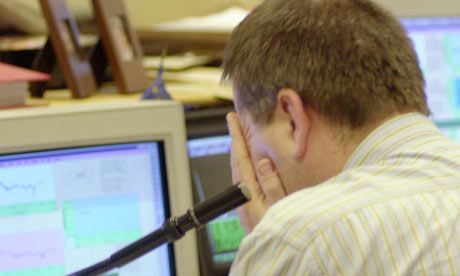
How long have you been staring at this screen? An hour? Two? Probably longer if you have a desk job. Unless you are very disciplined about taking time out, and don't spend your lunch break eating at your desk while faffing about online, you could be spending as much as eight or nine hours a day looking at little other than your screen.
Monitors have come a long way since the flickering black screen with green text of old, and there has been plenty of research into whether using computer screens excessively can do any serious damage to your eyes. While the general consensus is that there is no significant link to permanent eye damage or disease, sitting day in, day out staring at a monitor can nonetheless lead to "tired eyes, discomfort, temporary short-sightedness and headaches", according to the Health and Safety Executive (HSE).
One of the first steps to staving off discomfort is to take regular screen breaks – something most people already know but few actually do. Your employer has to let you do this as part of its responsibility for your health and safety, and the HSE says short, frequent breaks are better than longer, less frequent ones. Try to aim to get away from your screen and do something different for five to 10 minutes every hour, rather than 20 minutes every two hours. (Here are some ideas to get you away from your desk.)
And, crucially, stop before you start to feel the strain. HSE guidance says: "Breaks should be taken before the onset of fatigue, not in order to recuperate and when performance is at a maximum, before productivity reduces. The timing of the break is more important than its length."
You should also ask your employer to carry out a workstation assessment. The position of your monitor, the type of lighting and glare on the screen can all contribute to eye strain if you don't get them right.
"Everyone should have a workstation assessment, and that would include screen position and text size," says optometrist Lyndon Taylor, who is a director at the Association of Optometrists.
If your eyes are feeling particularly tired after spells in front of the monitor, it is time to get them checked out. Taylor says: "As a general rule, people should have their eyes tested every two years, and people with certain conditions should do so more often. If you are experiencing headaches and eye strain then it is worth having an eye test."
If computer use makes up a significant part of your working day, you are entitled to ask your employer to pay for your eye test, so speak to your health and safety representative or human resources department before you book an appointment. Some employers will also contribute to the cost of glasses, although they are not obliged to do so unless your prescription is specifically for VDU use.
"Getting your eyes tested regularly is even more important if you are over 40," says Taylor, and if there is a history of certain conditions such as diabetes in your family then having a regular check up is also a good idea to identify the early signs of glaucoma.
Looking after your eyes could help your concentration, efficiency and improve your ability to do your job. It's not easy to do your best if you feel sluggish and your eyes are suffering. You don't need a better excuse to take a little break every now and again. Right, time I gave my eyes a rest.

